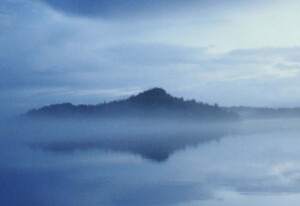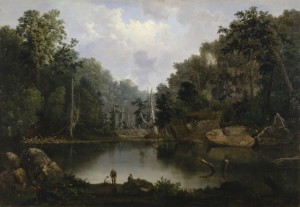- Project FeederWatch a winter-long survey | Northumberland Today
For two days in the week of Nov. 8, you will find me, for part of the day, sitting in the rocking chair near my back door, counting the birds visiting my feeder. Nov. 8 marks the beginning of another Project FeederWatch season. | Project FeederWatch is a winter-long survey of birds that visit feeders at backyards, nature centers, community areas, and other locales in North America. FeederWatchers periodically count the birds they see at their feeders from November through early April and send their counts to Project FeederWatch. FeederWatch data help scientists track broad scale movements of winter bird populations and long-term trends in bird distribution and abundance. | Project FeederWatch was started as an Ontario based feeder survey, begun in 1976 by Dr. Erica Dunn of Long Point Observatory. By 2014, it had grown into an international research project, co-sponsored by Cornell Lab of Ornithology and Bird Studies Canada.
- Weekend Plans: Long Point Bay, Ontario – Rapid Media102414
"Long Point Bay on Lake Erie is a world Biosphere Reserve, putting my local hole in league with the Great Barrier Reef. Until recently, this is something I was unaware of. I grew up here in Norfolk County and have fished the inner bay since before I could walk, but I never realized its importance to the Great Lakes system. I knew there was awesome bass fishing in the summer and that we have huge migrations of waterfowl that stop in the vast marshland surrounding the bay, but never really stepped back to realize how lucky I was to live in such a diverse freshwater fishery. Although Lake Erie is the smallest of all the Great Lakes, it’s huge; it’s a Great Lake. Kayaks are small and human powered, which makes for some limitations and challenges, but the rewards can be huge! Yak fishers have to fish for whatever we can reach on any given day, or time of year. The smaller size and shallower depth of Lake Erie mean its conditions can get nasty and dangerous very quickly. I have had my fair share of outings that I would not wish upon anyone. Those experiences have only taught me to be smarter about where I launch, or what days to even consider venturing out onto the water."
About the Ghost Turtles
150 years after Robert Duncanson painted this luminist scene on the Little Miami River, I stood in the same spot and saw a soft-shelled turtle sunning on a snag. It slipped silently into the water when it heard me. That’s when I knew past is present and destiny, too. That’s when my vision of the Ghost Turtles began. Read more
Ecology of the Senses
 Returning to Lake Superior year after year like a migrating loon, I’ve learned the other side of a slow, uncertain process that could be called “going blind.” With the lake as my teacher, I know what lies on the other side. I call it letting go of sight. Read more.
Returning to Lake Superior year after year like a migrating loon, I’ve learned the other side of a slow, uncertain process that could be called “going blind.” With the lake as my teacher, I know what lies on the other side. I call it letting go of sight. Read more.Prayer at Big Creek
![Sandhill cranes land on Platte River sandbar roosts west of Rowe Sanctuary’s Iain Nicolson Audubon Center southwest of Gibbon, Nebraska. [Photo by Lori Porter| Kearney Hub]](https://www.ghostturtles.com/wp-content/uploads/2015/03/sandhill_cranes_kearneyhub_032015-300x225.jpg) At the threshold of consciousness, as I slipped back and forth between two worlds, I put my mind in the best place I could imagine, a marsh on Lake Erie called Big Creek. I knew I’d find cranes waiting for me. I cannot say whether I prayed for them, or to them, or with them. The cant of words doesn’t matter. I believe in the still, small voice. I believe what the poet Yehuda Amichai said. Gods come and go. Prayer is eternal. Read more
At the threshold of consciousness, as I slipped back and forth between two worlds, I put my mind in the best place I could imagine, a marsh on Lake Erie called Big Creek. I knew I’d find cranes waiting for me. I cannot say whether I prayed for them, or to them, or with them. The cant of words doesn’t matter. I believe in the still, small voice. I believe what the poet Yehuda Amichai said. Gods come and go. Prayer is eternal. Read moreFreedom to Read
![An endangered Whooping crane takes flight. Yhe large bird has a 7-foot wingspan. It is all white except for black wing tips and face markings. In this photo its long neck stretches forward; its wings sweep upward; and its black legs trail straight behind it. [Source: International Crane Foundation]](https://www.ghostturtles.com/wp-content/uploads/2023/03/Whooping-crane-eastern-ICF-080622-300x157.jpg) Whenever I hear sanctimonious pronouncements about woke, parental rights, and banning books, I think of Whooping cranes. In my family, the gawky, audacious, elusive and endangered birds are synonymous with our values about the First Amendment and the freedom to read. Read more.
Whenever I hear sanctimonious pronouncements about woke, parental rights, and banning books, I think of Whooping cranes. In my family, the gawky, audacious, elusive and endangered birds are synonymous with our values about the First Amendment and the freedom to read. Read more.Sister, Teacher, Pathfinder
 A guidance counselor in high school told my sister Diana, “With your eye problems you will never make it in college. Just forget about it. Get married. Raise a family.” That advice only deepened her determination. She did it all in due time, in her own way –college, marriage, family. She became a guidance counselor herself. She certainly was the most important guide and pathfinder in my life. Read more.
A guidance counselor in high school told my sister Diana, “With your eye problems you will never make it in college. Just forget about it. Get married. Raise a family.” That advice only deepened her determination. She did it all in due time, in her own way –college, marriage, family. She became a guidance counselor herself. She certainly was the most important guide and pathfinder in my life. Read more.Flaneur & Bouquiniste
![Mark Willis peruses a 1745 volume by Voltaire at a bouquiniste book stall on the banks of the Seine in Paris. He wears a brown leather jacket and checkered flat cap. He holds the open book in his hands. Rows of old books are seen on shelves behind him. [2005 photo by Ms. Modigliani]](https://www.ghostturtles.com/wp-content/uploads/2023/03/mw_bouquiniste_05-300x225.jpg) I remember the book I held in my hands that day. I remember the feel of its time-warped, water-stained pages. I remember its murky, moldy river smell, call it the book’s bouquet, suggesting years of storage on the banks of the Seine. Had I bought it then, I could feel and smell it now and know it from a hundred other books in my library. Read more.
I remember the book I held in my hands that day. I remember the feel of its time-warped, water-stained pages. I remember its murky, moldy river smell, call it the book’s bouquet, suggesting years of storage on the banks of the Seine. Had I bought it then, I could feel and smell it now and know it from a hundred other books in my library. Read more.R & K: A Rant
 Marjorie Taylor Green auditioned for R&K’s Authoritarian It Girl at the 2023 State of the Union address. She and her Republican colleagues yelled like Tarzan swinging through the trees as they jeered and booed the President’s speech. Read Rants & Kisses.
Marjorie Taylor Green auditioned for R&K’s Authoritarian It Girl at the 2023 State of the Union address. She and her Republican colleagues yelled like Tarzan swinging through the trees as they jeered and booed the President’s speech. Read Rants & Kisses.R & K: A Kiss
 Songs by Burt Bacharach and Hal David. Singers like Dione Warwick and Dusty Springfield. What Do You Get When You Fall in Love? The Look of Love. I Say a Little Prayer. I sit in the car’s back seat and listen. I’m glad it’s dark. I’d be embarrassed if anyone could see the dreamy look on my face. Read Rants & Kisses.
Songs by Burt Bacharach and Hal David. Singers like Dione Warwick and Dusty Springfield. What Do You Get When You Fall in Love? The Look of Love. I Say a Little Prayer. I sit in the car’s back seat and listen. I’m glad it’s dark. I’d be embarrassed if anyone could see the dreamy look on my face. Read Rants & Kisses.

